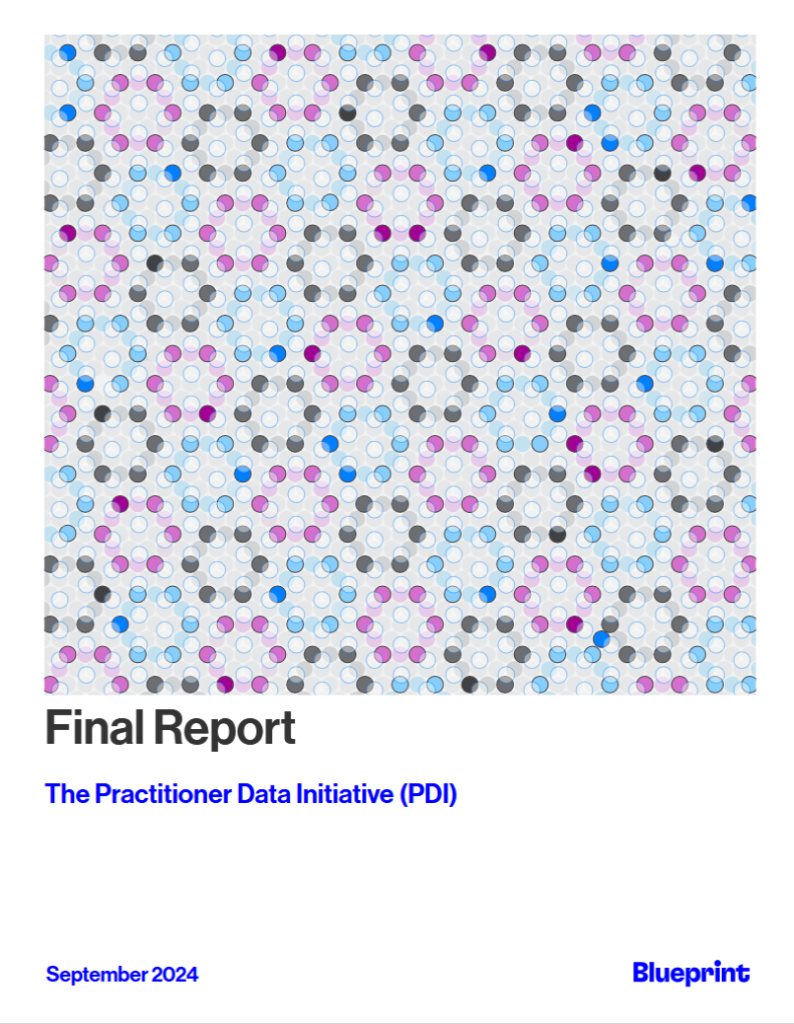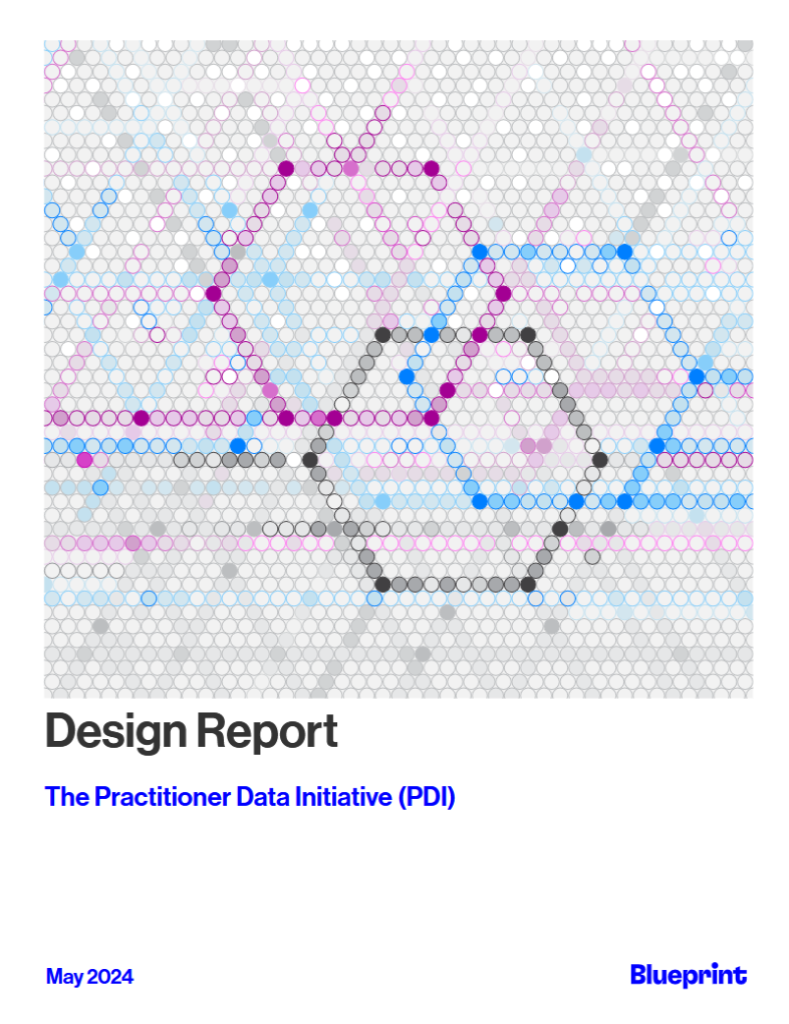Project Insights Report
Practitioner Data Initiative: Building Data Capacity
 Executive Summary
Executive Summary
More than ever, data is critical for nonprofits to drive strategic decision-making and program improvement. For community service nonprofits, data helps answer important questions of program impact and client experience, allowing them to stay nimble and deliver responsive, impactful services. But nonprofits often struggle to harness the power of their own data.
Between limited funding opportunities dedicated to data capacity and the lack of trusted technical advice familiar with nonprofits, many nonprofit leaders and their organizations don’t know how to get started. This is a lost opportunity—for nonprofits, their funders and the skills ecosystem. Without better data capacity, it will remain a challenge to know how well community-based services, like skills training, are meeting the needs of Canadians.
On behalf of the Future Skills Centre (FSC), Blueprint created the Practitioner Data Initiative (PDI), a pan-Canadian project that responds to data challenges nonprofits face. Through the PDI, community service nonprofits receive a $100K to $200K grant from FSC, and partner with Blueprint for 12 to 18 months. During this time, they receive trusted, technology-neutral advice based on Blueprint’s deep expertise in program data, technology solutions and nonprofit service delivery.
The PDI model has three core elements:
- Development of a capacity building plan
- Implementation guidance and supports
- Opportunities for peer learning and exchange
Each capacity building plan is tailored to the needs of the nonprofit partner. They identify specific actions related to key data capacity levers:
- Developing and hiring talent and skills
- Investing in technology solutions
- Building a data culture in the workplace
- Advancing the value of data internally and externally
- Attracting additional resources/funding for data capacity
In Phase 1, kicked off in Spring 2021, Blueprint selected nine partners through an Expression of Interest to pilot PDI and help develop and test the model. Promising results informed Phase 2.
In Phase 2, kicked off in Fall 2022, an additional six partners were selected to further refine the PDI model. All PDI partners—outlined below—are committed to advancing their journey towards improved data capacity.
Blueprint is publishing a series of case studies to illuminate how the Practitioner Data Initiative is helping organizations to harness their own data, and in turn, grow their impact for the clients and communities they serve.
 Case Studies
Case Studies

Calgary Catholic Immigration Society
Informing program development to support newcomers

Saint John Learning Exchange
Supporting continuous improvements in education and employment services

Immigrant Employment Council of British Columbia
Enhancing data capacity to expand the longevity of newcomer employment services

The Neighbourhood Group Community Services
Improving delivery of community support services

Calgary Immigrant Women’s Association
Streamlining data management practices to improve data-driven strategic planning, decision-making and program development
 Data Capacity Compass
Data Capacity Compass
The Data Capacity Compass is a self-guided toolkit designed to help nonprofits confidently navigate the world of data. Whether you’re just starting out or refining an established approach, the Compass offers a clear, step-by-step pathway to make data a powerful asset for your organization.
With tools tailored to nonprofits’ needs, the Compass helps you understand your data landscape, develop strategies for effective data collection and management, and communicate your impact.
The toolkit includes accessible templates, guides, and examples that meet you where you are, allowing you to work at your own pace. By making data actionable and integrated into your everyday decisions, the Data Capacity Compass helps your organization drive change with clarity and purpose.
Our quick and easy assessment will point you towards the right tools for your organization. In just a few minutes, you can gain valuable insights into your current data capacity and identify the specific resources that will help you make the biggest impact.
Practitioner Data Initiative Final Report
FSC Insights
Practitioner Data Initiative Design Report
Building Data Capacity in the Frontline Settlement Services
Building Data Capacity in Employment Services and Continuing Education
Building Data Capacity in Newcomer Employment Services
Building Data Capacity in Community Services
Building Data Capacity in Gender-specific Settlement Services
Have questions about our work? Do you need access to a report in English or French? Please contact communications@fsc-ccf.ca.
More from FSC
Technological Transformations and the Automotive Services Industry
Addressing Regional Labour Shortages
Future-Proofing the Food and Beverage Processing Workforce
How to Cite This Report
(2024). Project Insights Report: Practitioner Data Initiative: Building Data Capacity. Toronto: Future Skills Centre. https://fsc-ccf.ca/projects/pdi/
Practitioner Data Initiative: Building Data Capacity is funded by the Government of Canada’s Future Skills Program. The opinions and interpretations in this publication are those of the author and do not necessarily reflect those of the Government of Canada.






